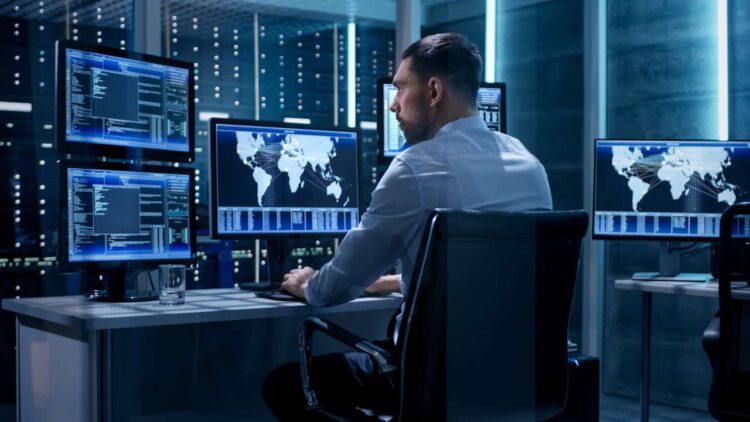How to protect your device from hackers.
Technology is everywhere. It is literally an intertwined, inescapable, and increasingly prevalent part of our lives in a way that would have been inconceivable even a couple of decades ago. There literally is almost no part of our lives not touched by the internet, from dating to shopping, from paying bills to working remotely, and from the arts to education to entertainment, the internet has become a consequential and virtually inseparable part of our daily existence.
Real Crimes In A Virtual Realm
Which is why protecting your device from cybercrime attacks is so vitally important. Even one device being successfully hacked can expose private data and highly sensitive personal information to hackers, spammers, and general bad actors. We’ve all seen in recent years the personal and financial damage that can be done when a database is compromised and private info is exposed or used for nefarious purposes.
Cybercrime comes in many forms and guises, from data and technology theft to stalking and online bullying, with the collective global cost of such criminality expected to be a jaw-dropping $10.5 trillion by 2025, with the rate of new cybercrimes predicted to rise by some 15% year on year for the next four consecutive years.
Prevention Of Cybercrime
So cybersecurity clearly is a serious matter of personal and professional safety to be taken with grave concern and to be prevented by all means necessary. Many people are still naively unaware at just how sophisticated hacktivists of whatever intent have become in recent years, with their lack of guile being ruthlessly exploited daily by online criminals.
So, for the purposes of this article, we will list 5 ways you can help protect yourself from cybercrime.
1. Antivirus Software
When you purchase a device linked to the internet, one of the very first things you need to do is purchase or download an effective antivirus software package. What this will do is protect in real-time your entire system from online attack, analyzing files and emails you receive for evidence of infection from assorted forms of malware, checking and notifying you of downloads that may pose a safety threat to your system, and both blocking and catch-and-quarantining actual viral attacks on your system.
To operate online without a good antivirus program is to invite hackers to completely compromise your system very quickly and steal your private data. It is, in short, utterly indispensable.
2. Updates
Further to having a strong antivirus program guarding your online access, you also need to keep it fully updated. Cybercriminals are continually exploiting gaps and flaws in anti-virus databases, always learning and evolving their attacks and their malicious software.
Most if not all antivirus guards will have intermittent automatic updates that will install automatically or only with your consent. It is highly recommended that you accept and install these updates as regularly as they are presented to maintain maximum cybersecurity integrity.
3. Passwords
One of the most common and easiest ways for cybercriminals to breach someone’s system is exploiting and successfully guessing passwords. And many people have fallen victim to this mode of entry by having passwords easily guessed. The most common passwords are ones so ridiculously easy to predict that it’s any wonder people find their device compromised and corrupted. Passwords such as “1234567”, “qwerty”, and even “password” (!) are used more often than you can imagine.
It is recommended by cybersecurity professionals that you use multiple passwords for different programs, that your password should be around 12 characters, contain upper and lower case letters and numbers, and for none of those passwords to be your name, family member names, or your birthdate. Having a password manager application is also strongly recommended.
4. Social Media
It is incredible how much personal information you can gleam from someone’s social media accounts. From Twitter to Facebook to Instagram to TikTok, the accumulated information often put out on social media seemingly with abandon is ripe for exploitation.
It’s recommended that you refrain as much as possible from revealing too personal information on social media, to always check your settings to know who can view your posts, and to ensure your children know the risks of social media and to secure their data likewise.
5. VPN
A Virtual Private Network (VPN) is specialist software to provide a secure connection to the internet and to prevent you being tracked from site to site by encrypting the data you leave behind.
Never use a public wi-fi network without a VPN as this is one of the most common ways you can be tracked online. In using a VPN, should your system be compromised or cybercriminals breach your data, they will see only encrypted information shielded from their view and use.
We hope this article has provided you with useful tips in cybersecurity and keeping you safe online.




